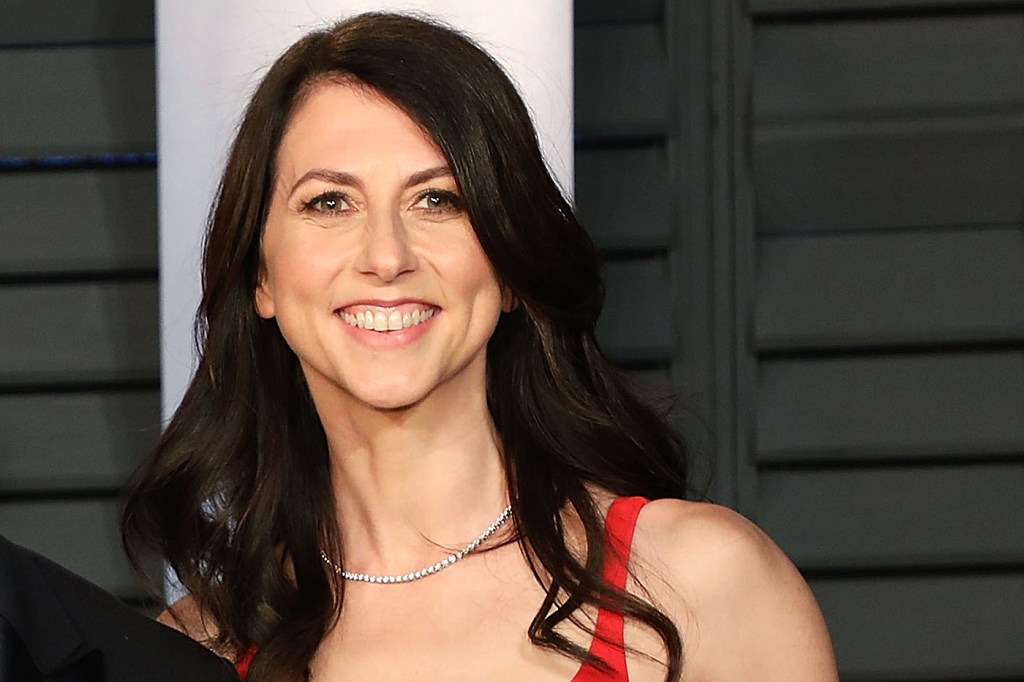This Giving Tuesday, think like a billionaire and follow MacKenzie Scott’s lead with donations

Today is GivingTuesday, an annual celebration for nonprofit organizations around the world. Last year in response to the COVID-19 pandemic, GivingTuesday elicited a record $2.47 billion in charitable donations from 34.8 million people.
The most generous trendsetter in the opaque field of philanthropy is MacKenzie Scott, the ex-wife of Amazon founder Jeff Bezos. Scott recently gave away $8.6 billion—thought to be the most donated by one person in a 12-month span. Half of Scott’s donations went to small local charities, and in many cases she broke with tradition by not dictating to the organizations how her money should be spent.

Patricia Illingworth, professor of philosophy and business at Northeastern. Photo Courtesy of Patricia Illingworth
“What impresses me the most is her ensuring that the people who are running the nonprofits are people who have had the experience that they’re addressing,” says Patricia Illingworth, a Northeastern professor of philosophy and business whose areas of expertise include philanthropy and ethics. “That means there are going to be Black leaders on nonprofits that are focusing on issues that concern Black people, and similarly for LGBTQ. That’s a big step because bias in philanthropy has been a big problem.”
Illingworth, whose latest book on philanthropy, “Giving Now: Accelerating Human Rights for All,” will be published in 2022, spoke with News@Northeastern about Scott’s methods and philanthropy in an era of social upheaval. Her comments have been edited for brevity and clarity.
Scott has promised to donate virtually all of the $60 billion she received in a 2019 divorce settlement with Bezos, her husband of 25 years. Why is she intent on giving it away?
She talks about how this wealth isn’t just hers, but it’s the result of the [financial] system. And so she really sees it as giving money back to people to whom the money really belongs. She had the money because of the system.
What do you make of her emphasis on small charities?
She’s targeting education, and to some extent racial justice. I worry a little bit that [Scott’s donations] may not be as effective as they can be.
I don’t really know how she chose these [recipients]. It sounds like she is working very closely with the Bridgespan Group, which is an organization that helps nonprofits as well as donors.
If you look at Bill Gates or George Soros, they have their own organizations that are doing a lot of research for them and figuring things out. Bill Gates has an amazing research organization, and if you are looking into global health it would be hard to do better than his setup.
And so that is a bit of a concern: I don’t feel quite the confidence in her choices that I do with Bill Gates.
Scott is going to be giving away money for years to come—her wealth grew even as she was giving away $8.6 billion. Is she changing the philanthropic world?
I would say yes—and in a positive way.
Recognizing that the people who have experienced the issues being addressed by a nonprofit should run the nonprofit is very, very important. That has been a problem in philanthropy: You have wealthy people making decisions about where money goes, and you end up perpetuating the very injustice that the philanthropy is designed to address.
So she is saying, if this is an organization that’s going to address systemic racism, you’ve got to have Black people in control. And that’s not easy to do. Being on a board often means you’ve contributed money to the board, and frequently those contributors are going to be wealthy white men.
Your upcoming book, “Giving Now,” argues that the “United Nations Guiding Principles on Business and Human Rights” should be applied to philanthropy. Why?
The guiding principles apply human rights responsibilities to corporations. I apply those same principles to nonprofit organizations.
In the case of the MIT Media Lab and the Jeffrey Epstein scandal, it became clear that MIT didn’t have any mechanism for vetting donors. It was, OK, let’s take Jeffrey Epstein’s money but keep it on the down-low—we don’t want to be engaged in reputation laundering.
You have the problem of tainted donors, like Jeffrey Epstein, or tainted donations, which would be something like the Sackler money from Purdue Pharma, where the money was made in a way that was problematic.
If you use a human rights framework, you can vet donors on that basis. If Jeffrey Epstein violated human rights, then you don’t take his money. If [Purdue Pharma] caused the global opioid epidemic, you don’t take that money either, because that’s a violation of human rights. It’s a way of helping us make decisions about philanthropy—decisions that we don’t seem to have a mechanism for.
Are there reasons to be concerned about mega-donors like MacKenzie Scott?
The main objection is that the big donors are determining the social agenda, which undermines democracy. And then you add that they are also taking a tax deduction that takes money away from the state to do things that people have chosen to do through the democratic process.
So you’re taking money away from the democratic process and determining the agenda.
But the problem is really billionaires, right? There are too many billionaires and [their numbers] are increasing over time.
For media inquiries, please contact media@northeastern.edu.






